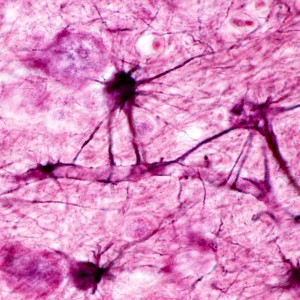Novel Resource in ALS Research: Library of Stem Cells with ALS-related Mutations
Written by |

 Researchers at Johns Hopkins University recently published in the journal PLOS ONE a novel resource to aid in studies focused on amyotrophic lateral sclerosis (ALS) pathogenesis and related drug development. The study is entitled “A Comprehensive Library of Familial Human Amyotrophic Lateral Sclerosis Induced Pluripotent Stem Cells.”
Researchers at Johns Hopkins University recently published in the journal PLOS ONE a novel resource to aid in studies focused on amyotrophic lateral sclerosis (ALS) pathogenesis and related drug development. The study is entitled “A Comprehensive Library of Familial Human Amyotrophic Lateral Sclerosis Induced Pluripotent Stem Cells.”
ALS is a progressive neurodegenerative disease that affects nerve cells (neurons) in the brain and spinal cord. It is characterized by the gradual degeneration of motor neurons that are responsible for controlling voluntary muscles, such as the ones involved in movement, speaking, eating, and even breathing. ALS patients may become totally paralyzed and the majority of patients die due to respiratory failure. There is no cure for ALS and only one drug has been approved by the FDA – riluzole — which was shown to delay disease progression and has a modest efficacy in increasing survival.
It is estimated that around 10% of all ALS cases are inherited; from these, 15 to 20% are thought to be associated with mutations in the copper (Cu)/zinc (Zn) superoxide dismutase (SOD1) gene and 40% to mutations in the C9orf72 gene. Mutations in other genes have also been reported to be associated with familial ALS cases, namely angiogenin, FUS/TLS, TDP-43 and Matrin3 genes.
Experimental models to study ALS pathogenesis are essential and many studies have been conducted in rodent models. In fact, several new therapeutic drugs for ALS have advanced to clinical trials due to preliminary studies in rodent transgenic models of ALS. However, due to the dissimilarities between humans and mice, there is a concern that rodent models might not be capable of effectively mimic complex human neurodegenerative diseases.
A novel valuable resource in ALS research is the human induced pluripotent stem cells (iPSC). Stem cells are undifferentiated cells capable of differentiating into several specialized cell types, like muscle, bone, skin, etc. Neurological disease-specific iPSCs can differentiate into the type of cells that are crucial for disease development, like motor neurons, and can be successfully used as disease models.
In this study, a comprehensive collection of 22 family ALS patient-specific iPSCs (fALS-iPSCs) lines was generated, which included a large set of ALS-related mutations, such as mutations in the SOD1, FUS, C9orf72, ANG and FIG4 genes. All the cell lines were thoroughly characterized before being inserted into this library and several lines exhibiting the same mutation were collected from different families. These fALS-iPSCs can be differentiated into astroglia, a critical cell type important for ALS progression.
The researchers believe that this fALS-iPSCs library, which was created to be available to academic and commercial entities, can be a useful tool in the study of ALS disease pathogenesis and in the development of new therapeutic strategies.





